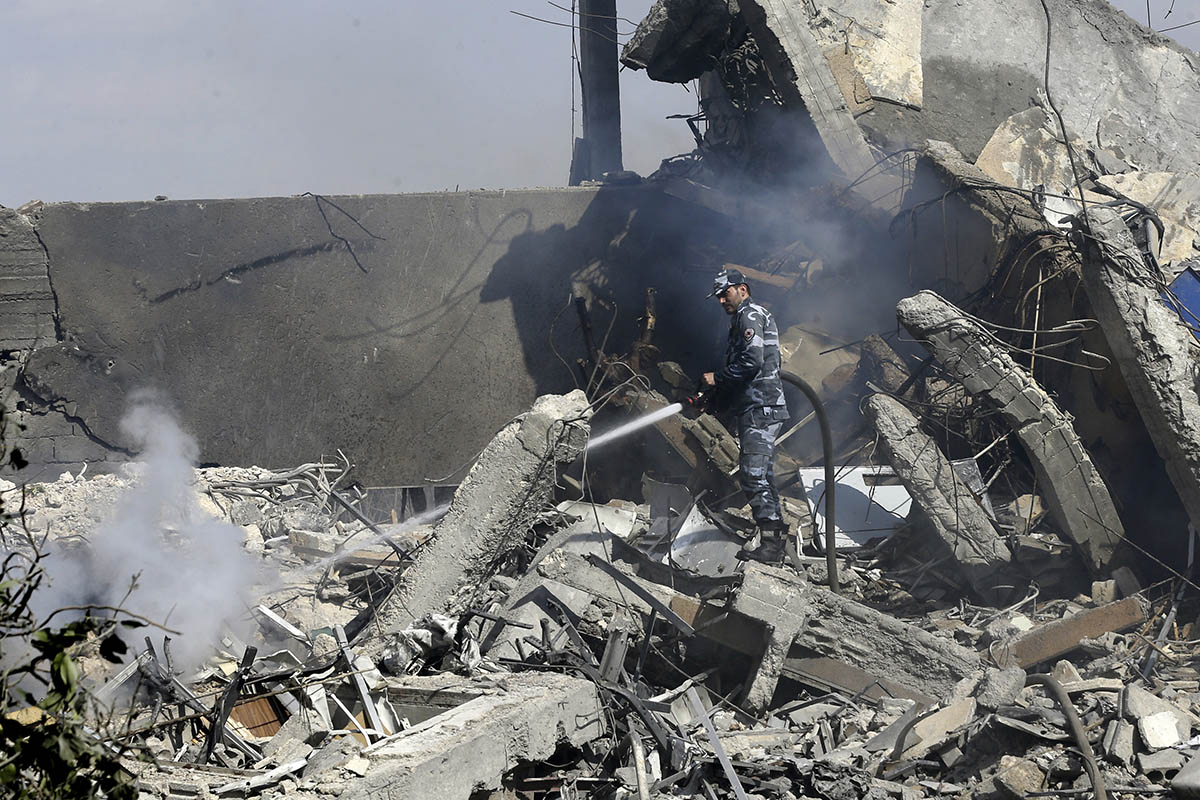At approximately 4 a.m. Syrian time, a unilateral US-led effort joined by the French and British, launched more than 100 missiles towards the Syrian capital of Damascus. The primary targets – two chemical weapons storage and production sites and another research facility said to be involved in the development of chemical weapons. The strikes come as a response to the alleged chemical weapons attack by the ruling regime, on civilians in the Damascus enclave of Douma.
Referring to Syrian President, Bashar al-Assad as a “monster,” United Sates (US) President Donald Trump, in a late-night address from the White House, called the move a “…strong deterrent against the production, spread and use of chemical weapons.”
“We are prepared to sustain this response until the Syrian regime stops its use of prohibited chemical agents,” he added.
His actions prompted a flurry of angered reactions from the Assad regime and its allies. According to Assad, the strikes only increased his resolve to “…fight and crush terrorism in every inch” of the country. Russia and Iran criticised the airstrikes with Russian President, Vladimir Putin calling it an “…act of aggression against a sovereign state” and Iranian Supreme Leader, Ayatollah Ali Khamenei labelling the heads of governments of the US, France and Britain as “criminals.”
As the Syrian conflict continues being a malignant, ever spreading tumour in the Arab world, actions like the recent airstrikes not only impact the Middle East but reverberates throughout the wider international space.
Unsurprisingly, the airstrikes have impacted oil prices, which would have dire short-term impacts on the growing economies of the Southeast Asian region. Brent crude oil prices soared to almost US$73 per barrel just before the strikes were launched, its highest level since May 2015. In the aftermath of the strikes, governments in the region are expected to closely monitor the situation.
On a geopolitical front, the actor to watch on this side of the world, is China. Having consistently supported Russian vetoes against United Nations Security Council (UNSC) resolutions over Syria, Beijing’s response to the airstrikes were carefully crafted to demonstrate dissatisfaction on the matter but shied away from calling out the US and its allies for their actions. China also urged for international cooperation via dialogue and negotiation to resolve the conflict in a peaceful manner.

Beijing’s response, should not come as a surprise. The conflict in Syria is a brilliant opportunity for China to present itself as a responsible global stakeholder. China’s six recent vetoes against the escalating tensions in Syria were often interpreted as a Russia-China bloc action against the other permanent members of the UNSC. However, China’s strategic calculations differ slightly from the Russians.
China has always championed the principle of non-interference with regards to conflicts in the Middle East and has even expressed its uneasiness towards Moscow’s unilateralist actions to continue propping up the Assad regime. In some ways, China shares similar suspicions with Russia over western backed Responsibility to Protect (R2P) efforts in the Middle East which could be interpreted as a new form of imperialism. Hence, in frustrating western powers in the UNSC to go down the path of unilateral action, Beijing would enjoy a moral high ground from which, they would be able to point a finger at the US for not conforming to international norms of conduct.
Moreover, Beijing’s hesitance to poke too much of its nose into Syria also has to do with its foreign policy and conduct in the Middle East. As compared to its actions in East Asia where it positions itself as de facto leader, China has become somewhat of an expert in toeing the middle ground in the Arab world. It has tenaciously navigated the tricky waters of diplomacy by garnering support from both sides of the Saudi Arabia - Iran rivalry. China sells weapons and engages in military exercises with both sides while firmly advancing its non-interventionist agenda.
Quite naturally, this does score significant brownie points for Beijing in the Middle East and entrenches its soft power in the region even more. In slowly gaining legitimacy on this side of the world, Beijing could very well utilise that influence to validate its causes in East Asia, specifically in maritime and sovereignty disputes as well as its grandiose Belt and Road Initiative (BRI) plans for the region.
